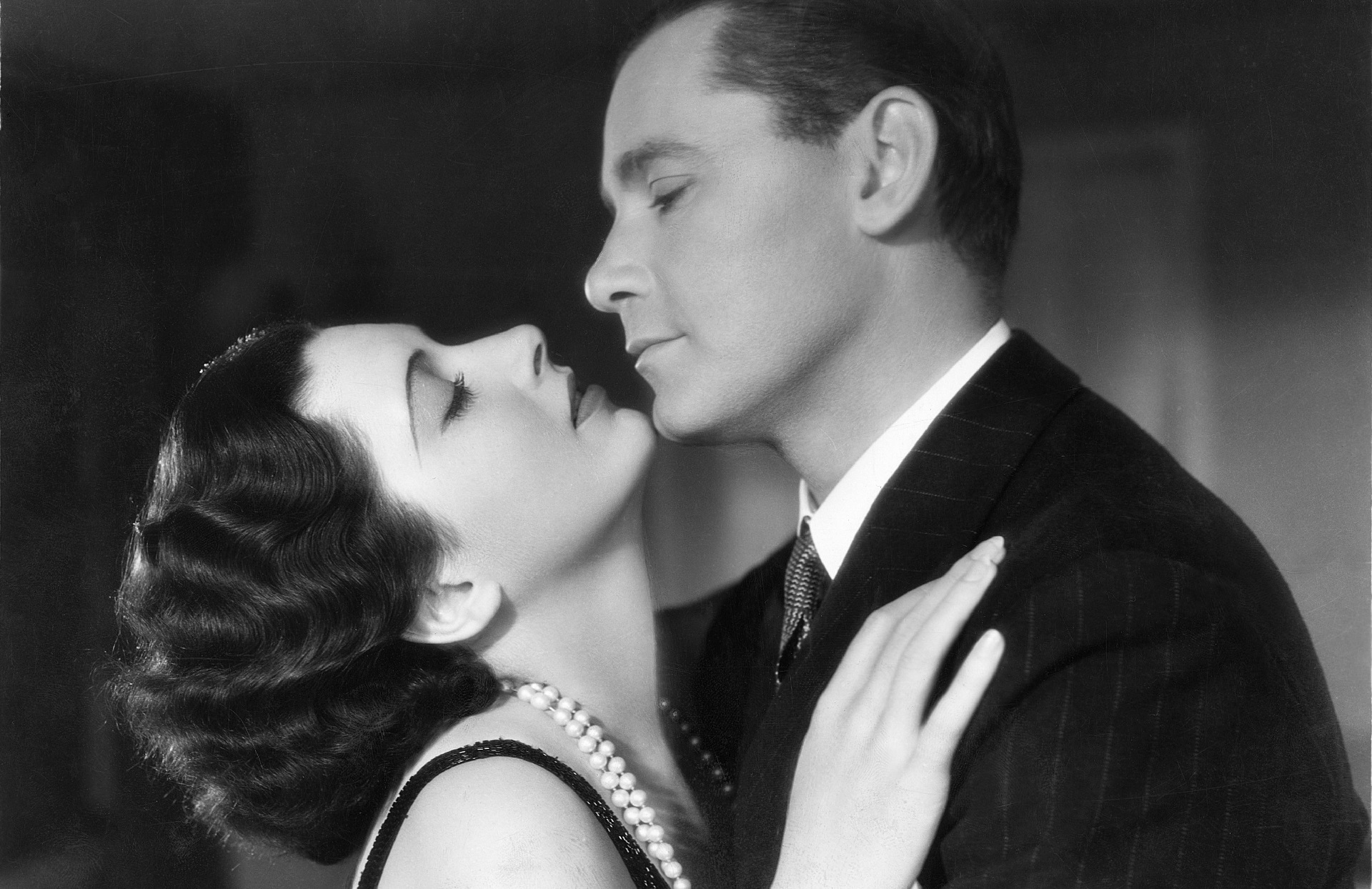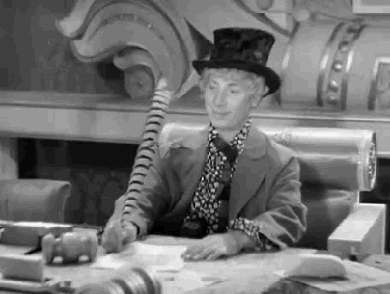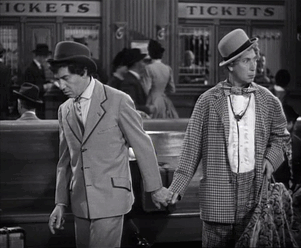"... When it came time for my studio contract to be renewed, Harry Rapf axed me [...]
"She's a talented writer," he conceded to his secretary, Madeleine Ruthvin (who was my friend), while dictating the fatal memo that would seal my fate at MGM. "But she's a troublemaker."
Troublemaker! That was the worst assessment anybody could receive in thos days in the picture business. A troublemaker was fined as anyone who defied (however unwittingly) the authority vested in executives and producers. The rumor spread like a contagious disease; agents picked it up--along with directors, producers and other writers.
"Don't touch her. She's a troublemaker." And so Frederica Sagor found herself out of a job.
Initially, I was sure that Ruth Collier could find me another writing assignment. I liked her, and we were friends. But I quickly learned that her powers of persuasion were as limited as her contacts. A small agent, she did not have ready or easy access to executives, producers, or even directors. Casting directors, story departments, some editors--yes. But for a writer to get important assignments, it was necessary to deal at the top. That was how I had gotten started. A direct contract with Ben Schulberg, head of Preferred Pictures, earned me The Plastic Age assignment. A direct contact with Edmund Goulding, a well-entrenched director and writer at MGM, gained me entrance there. No agent, big or small, could have accomplished this.
Who else did I know at the other studios? Who else had ever heard of Frederica Sagor, aspiring screenwriter with only two screen credits to her name? And my third, The Waning Sex, was in perilous question. Once I was off the MGM lot, Hugh Herbert, a skillfully bright player, ingratiated himself with Harry Rapf and Bob Leonard. Carey Wilson was the fourth hand.
It was from Madeleine Ruthvin I learned that a secret preview showing of The Waning Sex was being held in La Jolla, north of San Diego, California. Of course I wanted to be there, so I headed my trusty Moon one hundred miles south to the snazzy seacoast resort, which seemed an ideal choice for a preview of our sophisticated offering.
Did I say our? As the credits unfolded on the screen, there, large as life, appeared the name of F> Hugh Herbert as the sole author of the adaptation and screenplay of The Waning Sex. Nowhere was there a mention of Frederica Sagor, the writer who had been handed a title, nothing more, and who had birthed the characters and story line from scratch. Apparently that argumentative conference with Harry Ruthvin had cost me my credit. I shrank into my seat, praying that no one would notice me. The fact that the picture was a scintillating success, winning a standing ovation from the audience, only made the situation more poignant. As everyone gathered in the lobby to congratulate its, star Norma Shearer: producer, Harry Rapf; and director, Bob Leonard; as well as the undeserving Lilliputian writer, F. Hugh Herbert; I managed to slip out of the theater. Through tear-dimmed eyes I found my Moon in the parking lot and began the lonely, long trek back to Hollywood.
There was plenty of time to reflect and review the events that had brought about this catastrophic turn of events in the writing career. Tears were a waste of time; I had some good hard thinking to do. With every click of the flying miles, I put it all together again. My denial of credit on The Waning Sex was, of course, retaliation for my impudence in challenging my producer's august judgment, even though I was well aware that without my treatment he would have had nothing to work on but a title. He was also well aware that when Hugh was called into the picture the hard work of establishing the plot and characters had already been done. Hugh's contribution, it could be fairly said, was to add some extraneous characters and business that ended, as predicted, on the cutting room floor--proving me right, but ironically curtailing my sweet MGM contract.
Ruefully, I realized I had played my cards badly. One did not lightly challenge authority in the movie business. There were times when one had to button one's lip, and I had been too cocky, too sure of myself. But now, how to undo the damage of my abysmal inexperience in the world of studio politics? That was the conundrum, the "sixty-four-dollar" question! There was only one way; I had to swallow my pride and use what writer's wits I had left to appeal to Harry Rapf to reverse my punishment. There was still time before they shipped prints of The Waning Sex back East.
I wrote a pleading, groveling, hypocritical letter to Harry Rapf designed to appeal to his ego. I asked him to perform the magnanimous gesture of pardoning me, his repentant supplicant, who, after all, had only been trying to do her job, her best, for the aggrandizement of the roaring King of Lions, the great MGM. The letter, still in my files, took three days to compose. It did the trick, at least as far as that one film was concerned. I was given credit with F. Hugh Herbert for The Waning Sex--but I was not welcomed back to MGM."
The Shocking Miss Pilgrim: A Writer in Early Hollywood.
Mass, Frederica. 2010

_-_Carey.jpg/220px-The_Outcasts_of_Poker_Flat_(1919)_-_Carey.jpg)





.jpg)




